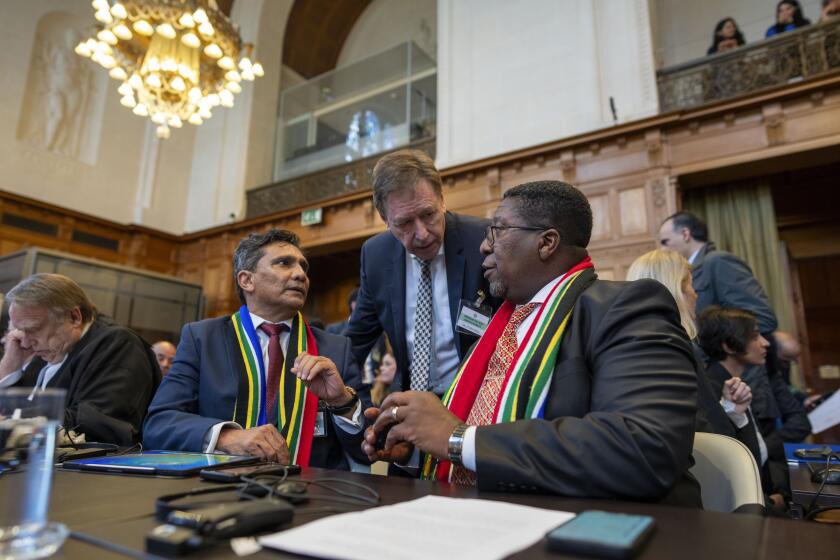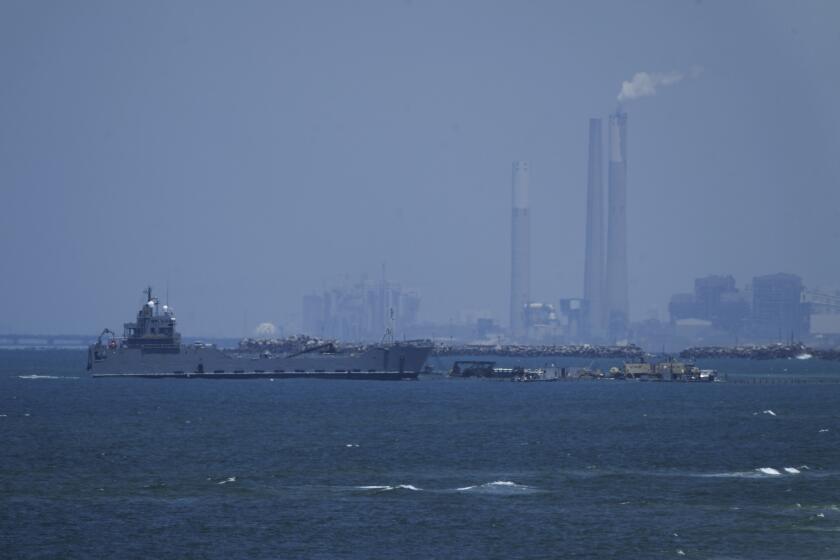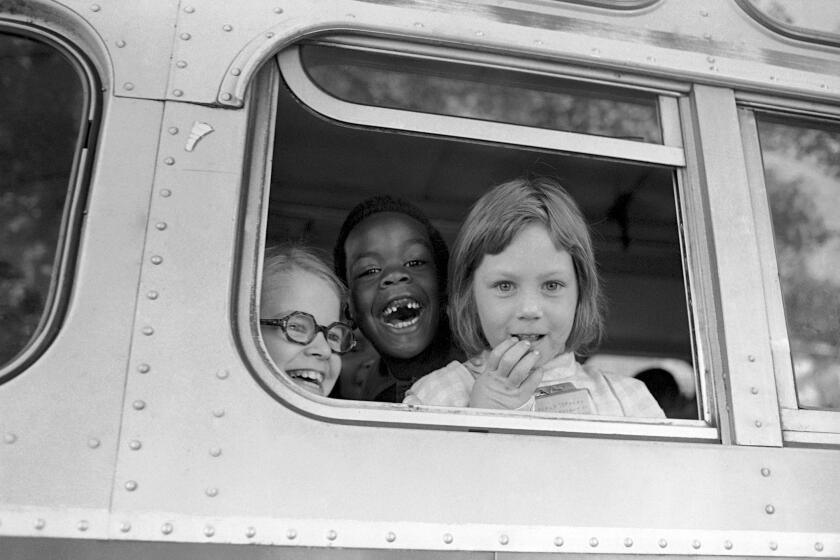Despite Gaps, ‘Hands’ Hopes to Net $50 Million
Organizers of Hands Across America, estimating that 6 million people took part in Sunday’s coast-to-coast fund- and consciousness-raising event for the nation’s hungry and homeless, said Monday that, despite gaps in the line, they still hope to net $50 million.
No final figures on money raised will be available for months, organizers said, because in addition to cash and pledges received before the event, at least 5 million envelopes for contributions were distributed Sunday along the line from Long Beach to New York City.
“We would have to have gross earnings of about $60 million to net $50 million,” said Marty Rogol, executive director of USA for Africa, which staged the event. “Are we halfway there? I don’t know. Are we two-thirds there? I don’t know. Are we going to reach our goal by mid- to late-summer? Probably.”
A toll-free number for pledges will remain in operation through the end of this year, Rogol said.
About a dozen tired Hands Across America staff members at its national headquarters in Century City fielded phone calls and media inquiries in a muggy suite of offices Monday, as the high-rise building’s air conditioning had been turned off for the long weekend.
Firm figures on turnout, and such questions as how many participants signed up ahead of time and how many decided to join at the last minute, await results of surveys taken Sunday and reports from state offices, Rogol said.
Rogol said that Hands Across America expenses totaled slightly less than the $12 million that had been budgeted, which included more than $2.5 million for insurance; nearly $1 million for security; the cost of phones, printing, postage and staff, and other expenses. Corporations--including major sponsors Citibank and Coca Cola Co.--put another $10 million into advertising and other costs of the event, organizers estimated.
Organizers declined to release any figures on money raised so far, and stressed that they will not measure the event’s success by the money it brings in.
“The ultimate success of the event is judged on the impact it has on hunger and homelessness in this country,” said entertainment entrepreneur Ken Kragen, president of USA for Africa and the moving force behind Hands Across America. “The money itself, whether it’s $20 million or $50 million, will only do so much. It will help some people and some lives, but it certainly will not solve the problem.”
Although organizers’ estimate of 6 million participants was more than the 5.5 million people believed necessary to stretch hands along the 4,125-mile route, the crowds were congregated in major cities, rather than spread evenly along the line. Organizers dismissed gaps in the line as of no importance.
What really matters, Kragen said, is whether participants in Sunday’s event become more active in trying to help America’s impoverished.
“So much depends on how effective we are in getting some percentage of those people who took the trouble to participate . . . to get more actively involved, in whatever form it takes,” Kragen said.
Examples Cited
As examples of such activism, Kragen mentioned volunteering with local agencies helping the poor and lobbying government officials to place a higher priority on solving the problems of hunger and homelessness.
USA for Africa, which has its national headquarters in Los Angeles, will use the mailing list from Sunday’s event to continue raising money and to push for such individual commitment, Kragen said.
“We have a very substantial mailing list from this,” he said. “There are several million names of people who cared.”
State directors of Hands Across America will meet in Los Angeles June 5 and 6 to share notes and discuss “how do we best move forward from an event like this,” Rogol said.
Plans call for 60% of the money raised by Hands Across America to go to emergency needs and established service groups, while 40% will go for innovative programs that seek to address the basic causes of poverty and homelessness, Rogol said. He described the financing of such innovative programs as a form of “venture capital.”
“What we would like is to find models that, if they work well, can be duplicated and really have an impact,” he said.
More to Read
Start your day right
Sign up for Essential California for news, features and recommendations from the L.A. Times and beyond in your inbox six days a week.
You may occasionally receive promotional content from the Los Angeles Times.






